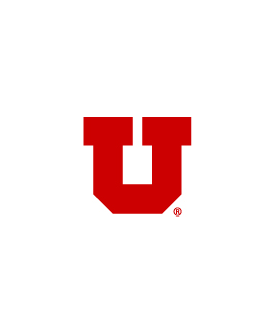About the Program
Program Home
Have questions? Reach out
The Master’s degree (M.Ed.) in Educational Psychology with a Specialization in School Counseling is a 60 credit hour, 2-year program accredited by the Masters in Psychology and Counseling Accreditation Council (MPCAC). It features a curriculum designed to prepare students for licensure as a professional school counselor.
Highlights
- Rigorous curriculum
- Blend of Ph.D. faculty who are experts in their field as well as practicing school counselors
- Assistance applying for practicum and internship
- Professional memberships in ASCA and USCA
- Conference attendance at USCA
- Community-building activities (e.g., peer mentoring, town halls, etc.)
- Leadership experiences
- No Thesis; instead we pay for you to take the Praxis 5422 School Counseling licensing exam
- Flexible time limits – a 3-year program of study is available
Mission Statement
The mission of the School Counseling Program is to prepare pre-service school counselors for work and leadership roles in K-12 educational settings. The course of study supports the acquisition of developmentally appropriate, competency-based knowledge and skills necessary for professional practice as a transformative school counselor. Students are challenged to reflect on their own values, attitudes, and beliefs and apply community-based sensitivity, responsiveness, knowledge, and understanding to all aspects of their work. Students learn how to design, implement, and evaluate evidence-based school counseling interventions that promote 1) optimal human development and functioning, and 2) access and equal opportunity to pursue rigorous education for students across all walks of life. A major emphasis of our training is on clinical field experiences in partnership with local school districts. It is our hope that graduates will recognize and embrace their professional responsibility by becoming leaders in educational reform, agents of systemic change, and advocates for social justice in the communities they serve.

Program Objectives
The School Counseling Program emphasizes education in the science and practice of counseling and specifically in the specialization of school counseling.
Goal 1 Science
Produce graduates who understand and apply inquiry skills to issues that relate to the science of counseling and professional practice as a school counselor.
Goal 2 Practice
Produce graduates who have the requisite knowledge and skills for entry into the practice of school counseling.
Goal 3 Belonging
Produce graduates who have the awareness, knowledge, and skills necessary to address issues facing individuals and groups with differing perspectives and backgrounds, and who are capable of advocating for the needs and issues of all populations.
Goal 4 Professional Identity and Development
Produce graduates whose professional identity is that of a school counselor and who have developed the knowledge and skills that facilitate entry and a subsequent career in the profession.
Goal 5 Ethics, Professional Standards, and Legal Issues
Produce graduates who consistently apply the highest accepted standards of ethical and professional conduct to their work.
Program Model
ACCREDITATION
Our program is accredited by the Masters in Psychology and Counseling Accreditation Council (MPCAC) and abides by MPCAC standards and practices.
MPCAC standards integrate both counseling and psychological principles and theories. In so doing, MPCAC encourages cutting-edge training reflecting state-of-the-art research from both the psychology and counseling fields, as they offer complementary knowledge. Further, MPCAC is deeply committed to promoting culturally responsive services that promote the public good. Thus, it requires programs to offer coursework that contextualizes science-based knowledge and skills as they apply to specific populations and settings.
COURSEWORK
Course requirements and sequencing can be seen under the “Program Requirements” menu on the program home page. Each course in our program is tied to a program objective and each program objective fits within a program goal and Masters in Psychology and Counseling Accreditation Council (MPCAC) professional domain. Further, the learning objectives of each course are in alignment with the Standards for Utah School Counselor Education Programs (2018).
COLLEGE & CAREER READINESS
In the 2015 Utah Legislative General Session, House Bill 198 created the Strengthening Career Readiness for All Students. The goal of this program is to improve students’ college and career readiness by enhancing the skill level of school counselors who provide college and career counseling. Under this legislation, the State Board, in collaboration with educational entities and business/industry partners, developed a certificate for school counselors that certifies that a school counselor is highly skilled at providing college and career counseling. Our College & Career Readiness course incorporates the three required components of the College & Career Readiness certificate and thus, upon completion of our program, students can receive the State’s College & Career Readiness upon licensure.
CLINICAL FIELD PLACEMENTS
Clinical field placements allow students to translate theory, research, and content knowledge into practice and are a required component of Utah school counselor educator programs. Second year students complete a one-semester practicum (100 hours) and third year students complete a two-semester internship (600 hours). Both the practicum and internship need to occur in a K-12 public school following the Utah Comprehensive Counseling & Guidance Model and be supervised by an on-site licensed school counselor who has been practicing for two or more years. Both experiences are also linked to courses.
COMPREHENSIVE EXAM
We are a non-thesis program and therefore require a comprehensive exam. Students in the School Counseling Program take the PRAXIS 5422 Professional School Counselor exam as their comprehensive exam which is also the licensing exam required by the State of Utah. This test measures whether entry-level school counselors have the standards-relevant knowledge, skills, and abilities believed necessary for competent professional practice. The School Counseling Program owns PRAXIS study materials and has them available for students to check out in Salt Lake City and St. George.
Students typically take the PRAXIS 5422 early in the Spring of their 2nd year. They must receive a score of 153 or higher to be considered a “pass.” This score is also used as the minimum score for licensure in the State of Utah. Thus, when our students graduate, they will have already passed the professional school counselor licensing exam. We submit their PRAXIS score to the Utah State Board of Education along with their licensure and recommendation paperwork.
Our Faculty

A.j. Metz
Associate Professor, School Counseling Director
*Currently on sabbatical until June 30, 2026*
Educational Psychology
Profile for A.j. Metz